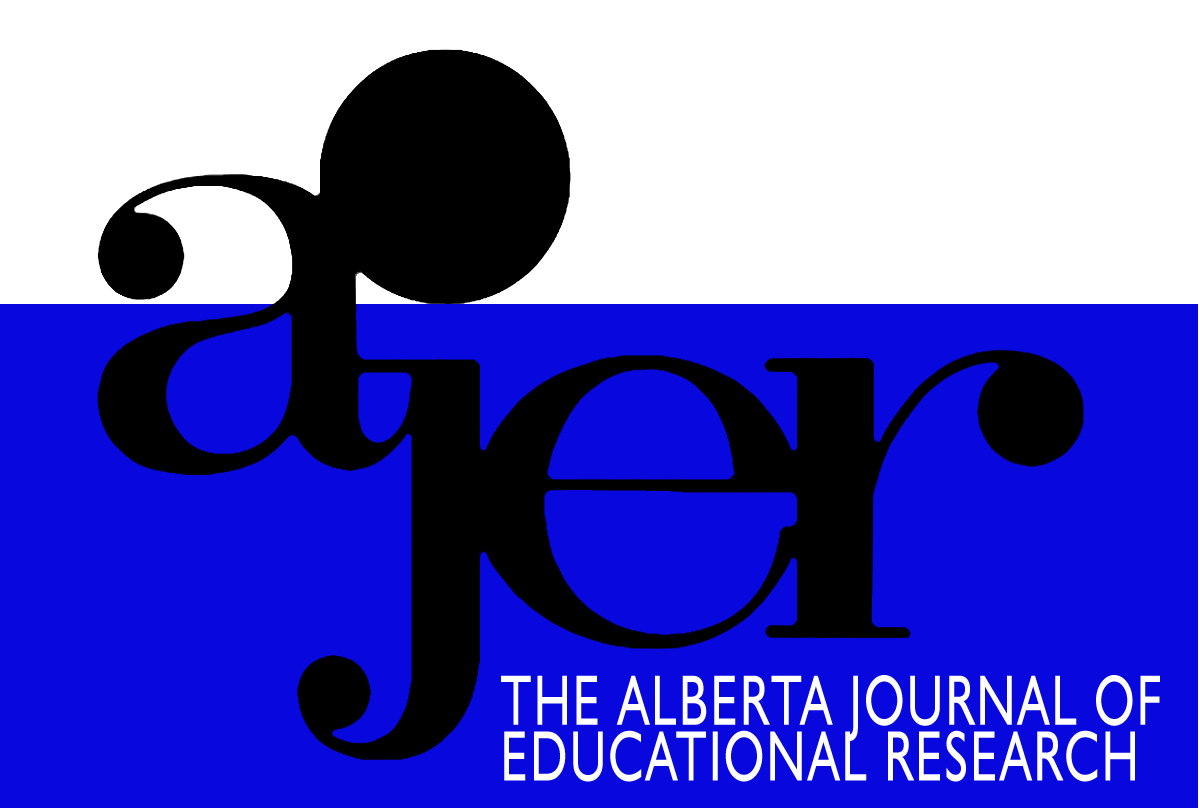Plagiarism: A Canadian Higher Education Case Study of Policy and Practice Gaps
DOI:
https://doi.org/10.55016/ojs/ajer.v66i4.69204Abstract
This mixed methods case study investigated faculty perspectives and practice around plagiarism in a Western Canadian faculty of education. Data sources included interviews, focus groups, and a survey. Findings showed that participants (N = 36) were disinclined to follow established procedures. Instead, they tended to deal with plagiarism in informal ways without reporting cases to administration, which resulted in a disconnect between policy and practice. The emotional impact of reporting plagiarism included frustration with the time required to document a case, and fear that reporting could have a negative effect on one’s employment. Recommendations include approaches that bridge the gap between policy and practice.
Key words: Academic integrity, plagiarism, Canada, higher education, faculty
Cette étude de cas à méthodes mixtes s’est penchée sur les perspectives et les pratiques du corps professoral relatives au plagiat dans une faculté d’éducation dans l’ouest du Canada. Les sources de données ont inclus les entrevues, les groupes de discussion et un sondage. Les résultats indiquent que les participants (N=36) étaient peu portés à suivre les procédures établies. Ils avaient plutôt tendance à employer des moyens informels pour traiter le plagiat, sans signaler les cas à l’administration, ce qui entrainait un écart entre la politique et la pratique. L’impact émotionnel découlant du signalement du plagiat comprenait le temps nécessaire à documenter un cas et la peur que le signalement puisse avoir une incidence négative sur son emploi. Les recommandations proposées incluent des approches visant à combler l’écart entre la politique et la pratique.
Mots clés : intégrité académique, plagiat, Canada, enseignement supérieur, faculté
Downloads
Published
Issue
Section
License
UNIVERSITY OF ALBERTA COPYRIGHT LICENSE AND PUBLICATION AGREEMENT
If accepted, authors will be asked to sign a copyright agreement with the following points:
A. Where there is any inconsistency between this Copyright License and Publication Agreement and any other document or agreement in relation to the same subject matter, the terms of this Agreement shall govern.
B. This document sets out the rights you are granting in relation to publication of your article, book review, or research note entitled (the “Article”) through inclusion in the academic journal titled Alberta Journal of Educational Research (the “Journal”) published through the Faculty of Education, representing the Governors of the University of Alberta (the “Journal Editor”).
C. There will be no payment to you for this publication and grant of rights. In consideration of the agreement to publish the Article in the Journal:
1. You are warranting that:
- the content of the Article is your original work, and its content does not contain any material infringing the copyright of others; or, where the Article is not entirely your original work, you have obtained all necessary permissions in writing to grant the rights you are giving in this agreement;
- the content of the Article does not contain any material that is defamatory of, or violates the privacy rights of, or discloses the confidential information of, any other person;
- the Article has not been published elsewhere in whole or in part, and you will not allow publication of the Article elsewhere without the consent of the Journal Editor;
- the names of all co-authors and contributors to the Article are:
2. You agree to license the copyright in the Article to the Journal Editor, on a worldwide, perpetual, royalty free basis; and to the extent required by the terms of this agreement. You shall retain the right at all times to be acknowledged as the/an author of the Article.
3. You further agree that the Journal Editor has the entitlement to deal with the Article as the Journal Editor sees fit, and including in the following manner;
- The right to print, publish, market, communicate and distribute the Article and the Journal, in this and any subsequent editions, in all media (including electronic media), in all languages, and in all territories, ing the full term of copyright, and including any form of the Article separated from the Journal, such as in a database, abstract, offprint, translation or otherwise, and to authorize third parties to do so;
- The right to register copyright of the Journal;
- The right to edit the Article, to conform to editorial policy as the Journal Editor sees fit.
4. If any co-author or contributor to the Article does not sign this agreement, the Journal Editor reserves the right to refuse to publish the Article.



